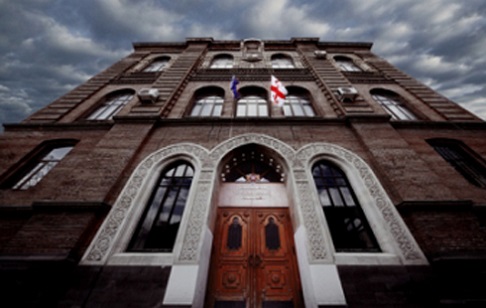Georgian MFA: ‘Alliance and Integration’ treaty between Moscow-Sokhumi will influence Georgia-Russia relations

Georgia’s Foreign Ministry believes Russia should abstain from signing a so-called new treaty on ‘Alliance and Integration’ with Georgia’s breakaway region Abkhazia, otherwise Georgia will consider Moscow’s official action as a step towards the annexation of Abkhazia.
A Kremlin proposed treaty on ‘Alliance and Integration’ with Abkhazia and Russia, released by Abkhazian media, outlined joint cooperation with de-facto Abkhazia in defence and security, economic harmonisation with the Eurasian union, social protection and foreign policy issues. Georgian authorities condemned the proposed treaty believed such an agreement was a "violation” of the fundamental principles of international law and commitment.
See also: De-facto Abkhazia: ‘Alliance and Integration’ treaty with Moscow will be signed this year
"It is unacceptable to talk in the so-called draft agreement on behalf of …two countries people in a preamble as it is widely known that the majority of the population of Abkhazia were forcefully removed from a given territory, by ways including ethnic cleansing,” read the statement of Georgia’s Ministry of Foreign Affairs (MFA).
"Unfortunately in the case of implementing this so-called agreement, it will create a treat to the identity to those people who still live in Abkhazia.”
Georgia’s MFA called on international organisations and the global community to pay special interest to this issue and be aware of "Russia’s intention”, which would qualitatively change the situation in the region and create additional problems to the European security.
‘Alliance and Integration’ treaty will be discussed at bilateral talks between Abashidze and Karasini
Furthermore, the MFA said this agreement could impact on the dialogue between Russia and Georgia, which launched two years ago on trade-economic and humanitarian issues.
"This [dialogue] plays a positive role in strengthening stability and security in the region. The so-called treaty implementation will create a threat against normalising Russia-Georgia relations. It will harm the Geneva International Discussion, which has particular importance,” the MFA said.
The Georgian Foreign Ministry said referring to bilateral talks led by Georgian PM’s special envoy for relations with Russia, Zurab Abashidze, and Russia’s Deputy Foreign Minister Grigory Karasin.
Earlier today, Abashidze told the Georgian journalist on his way to Prague where the next round of these talks are scheduled this week that the new treaty on ‘Alliance and Integration’ would be discussed at the meeting with Karasin.
One aspect of the document, titled "Agreement Between the Russian Federation and the Republic of Abkhazia on Alliance and Integration”, envisaged setting up a joint Russian-Abkhaz group of forces for collective defence and joint law enforcement structures for fighting crime.
The document has already been presented to the de-facto Parliament of Abkhazia for general discussion. Furthermore, Abkhazia’s de-facto leader Raul Khajimba believed the proposed new treaty will be signed by the end of this year.
De-fact Abkhazia's reactions
However, the draft document has already stirred controversial ideas from members of the de-facto Parliament. Meanwhile, Speaker of the de-facto Parliament Valeri Bganga stressed "there were more questions than answers” about the draft treat.
"In many paragraphs of the document there are talks about losing the sovereignty of Abkhazia. I would not like to formulate like this that the proposed document is negative. But to be honest, this reaction is close to that term. Therefore the reaction of Parliament members would not be positive,” Bganga said in an interview with Ekhokavkaza, a project of Radio Free Europe in the Caucasus region.
However, it was also unclear for Bganga if the defence structures of the de-facto Abkhazia would be preserved independently or not.
According to the draft treaty, an attack against one could be considered an attack against the other and consequently official Sokhumi and Moscow would provide "necessary assistance” to the other, including military, in the case of such an attack. Furthermore, Moscow has offered to provide Sokhumi with "complete freedom of movement” across the Russian-Abkhaz state border.
However, unlike Bganga, Abkhazia’s newly elected de-facto leader believed the treaty would enhance the region’s cooperation with Moscow.
 Tweet
Tweet  Share
Share